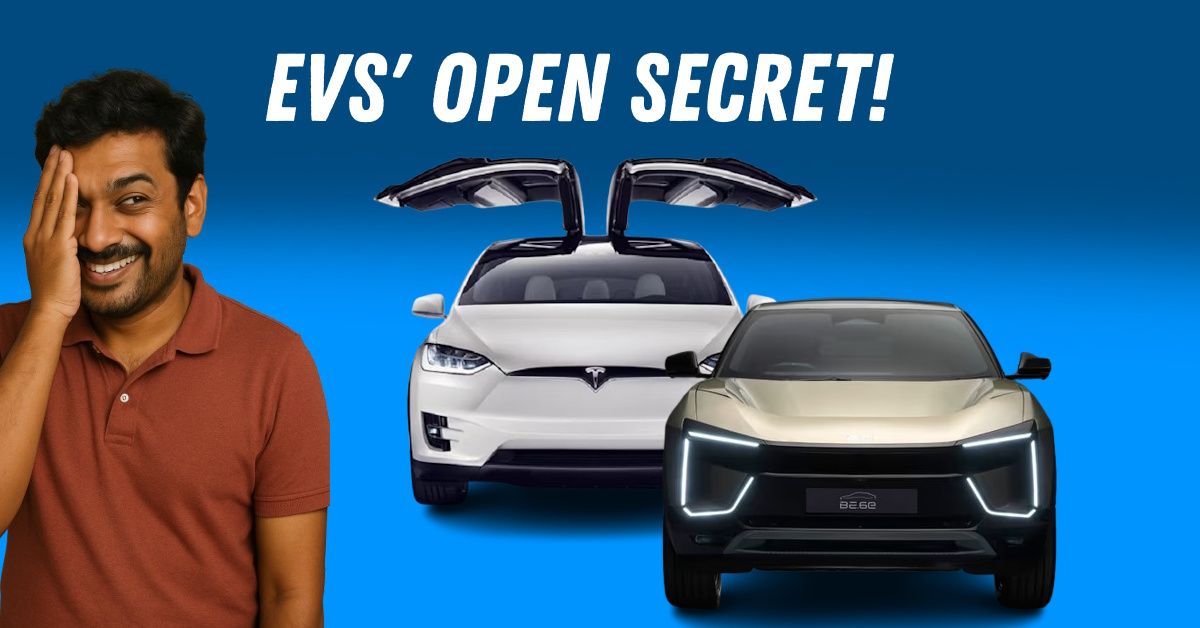Real Reason People Are Buying Electric Cars: No, It's Not To Save The Environment!


A recent global survey by European Energy firm E.ON has upended the popular narrative around electric vehicle (EV) adoption. Contrary to the common perception that climate concerns are the main driver, the latest research shows that the majority of EV buyers are actually motivated by the promise of lower energy costs rather than environmental benefits.
According to a June 2025 survey, over 70% of respondents cited reduced running costs as their primary reason for considering an EV, while only about 30% pointed to climate impact as their top motivator. This trend is consistent across multiple markets, including the fast-growing segment of urban car buyers who are increasingly cost-conscious.
The financial incentives are hard to ignore. For most city drivers, the cost of charging an EV at home is less than one-third the price of running a petrol or diesel car over the same distance. For example, with the average electricity rate for home charging, a typical EV owner can expect to spend only about ₹1.5-2 per kilometre, compared to ₹6-8 per kilometre for a conventional car, depending on fuel prices and vehicle efficiency. Over a year, this can translate into savings of ₹40,000–₹60,000 for those driving 1,000-1,200 kilometres per month.
Maintenance costs are another area where EVs shine. With far fewer moving parts, no engine oil, and less wear on brakes due to regenerative braking, annual maintenance bills are typically 30-40% lower than for internal combustion engine vehicles. Owners also report fewer visits to the workshop, saving both time and money.
The survey also revealed that younger buyers, particularly those under 35, are at the forefront of this shift. They are more likely to compare total cost of ownership online and are quick to notice the long-term savings EVs offer. For many in this age group, the appeal of advanced technology and lower running costs outweighs the traditional concerns about range or charging infrastructure. In fact, nearly 60% of respondents in this bracket said that saving money was a bigger factor than environmental impact when choosing an EV.
Despite these financial advantages, there are still hurdles. The initial purchase price of an EV remains higher than that of a comparable petrol or diesel car, and concerns about public charging infrastructure persist. In the same survey, 59% of those who were undecided or unlikely to buy an EV cited the high upfront cost as a barrier, while 56% mentioned the lack of convenient public charging stations. Range anxiety and concerns about battery replacement costs also continue to weigh on buyers’ minds.
However, these barriers are being eroded as more affordable models enter the market and charging networks expand. The total cost of ownership for many EVs is now competitive with, or even lower than, traditional vehicles over a five-year period, especially for those who drive longer distances or can charge at home.
What’s clear is that the EV market is being quietly transformed by a pragmatic focus on savings rather than idealism. Buyers are doing their homework, crunching the numbers, and making decisions based on what makes sense for their budgets. The environmental benefits, while welcome, are often seen as an added bonus rather than the main event.
This shift in motivation is reshaping the way manufacturers market their vehicles, with more emphasis on running costs and less on green credentials. As the market matures, expect this trend to continue, with savvy buyers leading the charge, not just for the planet, but for their own wallets as well.